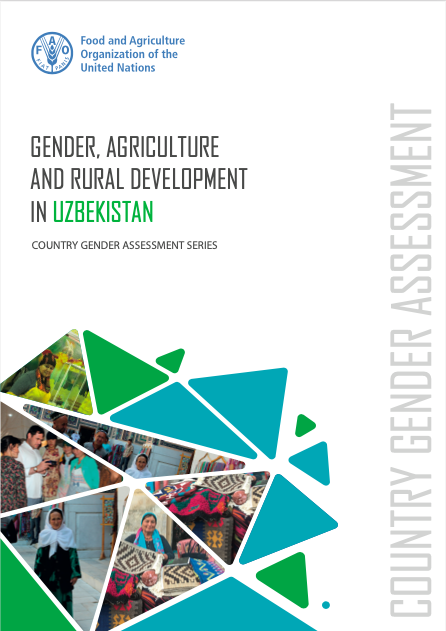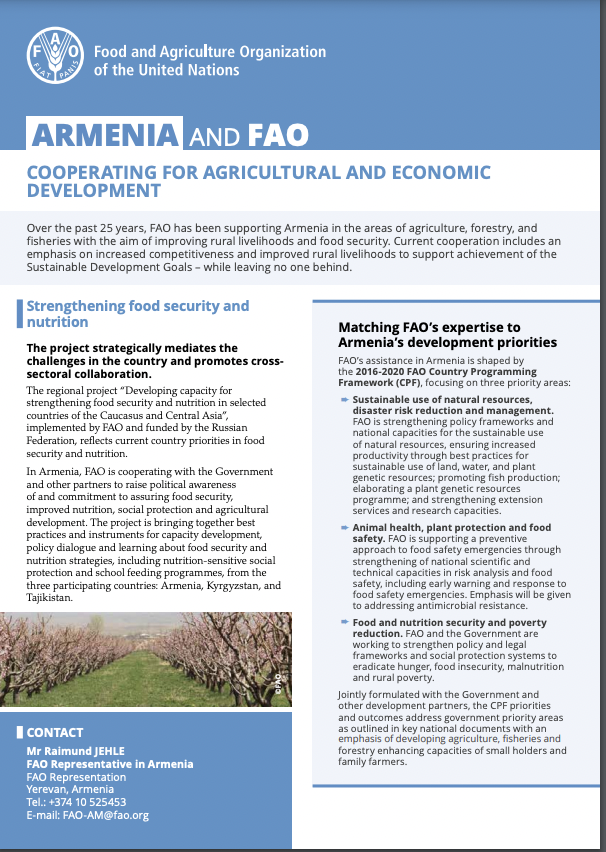Focal point
Location
The Food and Agriculture Organization of the United Nations leads international efforts to defeat hunger. Serving both developed and developing countries, FAO acts as a neutral forum where all nations meet as equals to negotiate agreements and debate policy. FAO is also a source of knowledge and information. We help developing countries and countries in transition modernize and improve agriculture, forestry and fisheries practices and ensure good nutrition for all. Since our founding in 1945, we have focused special attention on developing rural areas, home to 70 percent of the world's poor and hungry people.
Members:
Resources
Displaying 81 - 85 of 5074Land Degradation Neutrality in Small Island Developing States
Land degradation exacerbates the unique vulnerabilities of Small Island Developing States (SIDS) to environmental challenges, such as climate change, flash floods, soil erosion, lagoon siltation, coastal erosion and sea level rise, undermining their economic potential. Land Degradation Neutrality (LDN) contributes to achieving the Sustainable Development Goals (SDGs) in SIDS, preserving biodiversity and increasing resilience to climate change. Land degradation has a strong negative impact on climate-sensitive sectors like agriculture, water resources management and coastal zone management.
Global Sustainable Development Report 2019: The Future is Now – Science for Achieving Sustainable Development
A call to action: 20 interventions that will matter. The report’s Call to Action identifies 20 points where interventions can create transformative and accelerated progress towards multiple goals and targets in the coming decade. These targeted actions are based on the recent scientific literature analysing the deeper systemic interconnections that identify synergies and trade-offs between individual goals and targets. Decisions based on science. Science must play a major role in advancing sustainable development.
Road to Restoration. A Guide to Identifying Priorities and Indicators for Monitoring Forest and Landscape Restoration
By declaring the Decade on Ecosystem Restoration, the UN has recognized that there are only 10 years left to restore the world's degraded land. Countries are striving to fight climate change by 2030 through their Paris Agreement commitments and the Sustainable Development Goals (SDGs). But in many cases, their climate and development agenda are disconnected, even though sustainability and development go hand in hand – especially for rural communities. The divide is particularly severe when it comes to restoring degraded land.
Gender, Agriculture and Rural Development in Uzbekistan
Gender equality is a key to eliminating poverty and hunger, as it has been demonstrated by the FAO throughout its research worldwide. As part of the FAO efforts on generating evidence and knowledge, and in compliance with the FAO Policy on Gender Equality, the purpose of the Country Gender Assessment for Uzbekistan is to contribute to the production of knowledge for better informed, targeted and gender sensitive actions in agriculture and rural development.
Armenia and FAO
Over the past 20 years, FAO has played an active role in supporting Armenia’s national development plans and emergency projects aimed at increasing agricultural productivity and improving the country’s food security. The Organization has provided technical assistance ranging from developments in the agriculture sector to fighting transboundary animal diseases, natural resources management, land administration and forestry and fisheries interventions.









